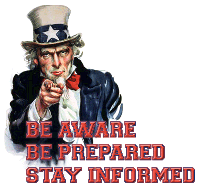Crime Prevention
Neighborhood Watch
Tips for Senior Citizens
Domestic Violence
Identity Theft
Neighborhood Watch is one of the most effective crime prevention tools being utilized today. Neighborhood Watch is basically a return to the way neighborhoods used to be. Years ago, people looked out for their neighbors’ property. If they saw something suspicious, they would investigate or call the police. Today in so many neighborhoods people do not even know their next door neighbor’s name. Neighborhood Watch was designed to help strengthen the relationships between neighbors and in the process build a community wide crime prevention network. Law enforcement officials have for years relied on the community to assist in apprehending criminals after the crime has been committed. With Neighborhood Watch, this assistance is proactive instead of reactive.

Working together, law enforcement and the community can stop the crime before it occurs. This is the core of the Neighborhood Watch program.
A Neighborhood Watch can be formed around any geographical unit: a block, apartment, public housing complex, business area, office, or marina. A watch group serves as an extra set of eyes and ears for reporting crime and helping neighbors. How effective a Neighborhood Watch is depends on how active its members are. Neighborhood Watch serves as a springboard for efforts that address community concerns such as recreation for youth, child care, and affordable housing.
How do I get started?
First, before you contact your local law enforcement agency, contact your neighbors. Send out a flyer, call, or visit your neighbors to get an idea as to what the main concerns in the neighborhood are in regard to crime and personal safety. Then contact your local law enforcement agency and check about setting up your first Neighborhood Watch meeting. In order for a group to be certified as a neighborhood watch, most agencies require a minimum of two initial meetings. After your two initial meetings, it is up to your neighborhood to elect a captain for your Neighborhood Watch. After you have established the core group of members and the area your watch will cover, you will receive your signs that will announce to would be criminals that your neighborhood is "on the watch." If you live in Ware County, Georgia, and would like to start a Neighborhood Watch, contact the Ware County Sheriff’s Office at (912) 287-4326
After a Neighborhood Watch program has been adopted in your community, here are some tips on things to do to keep your program active:
- Organize regular meetings that focus on current issues such as drug abuse, crime in schools, recreational activities for young people, and neighborhood problems.
- Organize community patrols to walk around streets or apartment complexes and report suspicious activity to police. People in cars with cellular phones or CB radios can
patrol.
- Adopt a park or street in the neighborhood. Pick up litter, repair broken equipment, paint over graffiti.
- If your resources will allow, publish a newsletter that gives prevention tips and local crime news, recognizes residents of all ages who have "made a difference," and
highlights community events.
- Plan neighborhood social events such as block parties, picnics, and volleyball or softball games.
As people grow older, their chances of being victims of crime decrease dramatically. But a lifetime of experience coupled with the physical problems associated with aging often make older Americans fearful. Even though they may be on the lookout constantly for physical attack and burglary, they’re not as alert for frauds and con games - in reality the greatest crime threat to seniors’ well-being and trust. Here are some tips on how to avoid becoming a victim as a senior citizen.
While out and about....>
- Go with friends and family, not alone.
- Carry your purse close to your body, not dangling by the straps. Put a wallet in an inside coat or front pants pocket.
- Don’t carry credit cards you don’t need or large amounts of cash.
- Use direct deposit for social security and other regular checks.
- Whether your a passenger or a driver, keep car doors locked. Be particularly alert in parking lots and garages. Park near an entrance.
- Sit close to the driver or near the exit while riding the bus, train, or subway.
- If someone or something makes you uneasy, trust your instincts and leave.
In your home....
- Install good locks on doors and windows. Use them! Do not hide keys in mailboxes and planters or under doormats. Instead, leave an extra set of keys with a trusted neighbor or friend.
- Ask for photo identification from service or delivery people before letting them in. If you are the least bit worried call the company to verify.
- Be sure your street address number is large, clear of obstruction, and well-lighted so police and other emergency personnel can find your home quickly.
- Consider a home alarm system that provides emergency monitoring for burglary, fire, and medical emergencies.
Watch out for con artist!
- Do not fall for anything that sounds to good to be true - a free vacation, sweepstakes prizes, cures for cancer and arthritis, a low-risk high-yield investment scheme.
- Never give your credit card, phone card, Social Security, or bank account number to anyone over the phone. It’s illegal for telemarketers to ask for these numbers to verify a prize or a gift.
- Do not let anyone rush you into signing anything - an insurance policy, a sales agreement, a contract of any kind. Read it carefully and have someone you trust check it over.
- Beware of individuals claiming to represent companies, consumer organizations, or government agencies that offer to recover lost money from fraudulent telemarketers for a fee.
- If your suspicious, check it out with police, the Better Business Bureau, or local consumer protection office. Call the National Consumers League Fraud Information Center at 1-800-876-7060.
Getting involved with community programs such as Neighborhood Watch, would help you take an active part in the safety of your community. If your neighborhood does not have a Neighborhood Watch Program, contact your local police or sheriff’s office.
Work to change conditions that hurt your neighborhood. If we are going to keep crime in check, we are going to have to work together. It takes everyone in the community, both young and old, to keep our neighborhoods a safe place we can be proud to live in. For more information about Senior Safety call 706-272-327
As many as four million women in this country suffer some kind of violence at the hands of their husbands or boyfriends each year. A women in the U.S. is physically assaulted by a partner an average of once every twelve seconds. Very few will tell anyone-- a friend, a relative, a neighbor, or the police. Victims of domestic violence come from all walks of life, all cultures, all income groups, all ages, all religions. They share feelings of helplessness, isolation, guilt, fear, and shame.
How do you know if you are abused? Ask yourself the following questions. Does the person you love.....
- "Track" all your time?
- Constantly accuse you of being unfaithful?
- Discourage your relationships with family or friends?
- Prevent you from working or attending school?
- Criticize you for little things?
- Anger easily when drinking or using other drugs?
- Control all finances and force you to account in detail for what you spend?
- Humiliate you in front of others?
- Destroy personal property or sentimental items?
- Hit, punch, slap, kick, or bite you or the children?
- Use or threaten to use a weapon against you?
- Threaten to hurt you or the children?
- Force you to have sex against your will?
If the answer to any of these questions is yes, It’s time to get help.
What do I do If I am being abused?
First, don’t ignore the problem. Talk to someone. Part of the abuser’s power comes from secrecy. Victims are often ashamed to expose intimate family problems. However, the first step toward solving the problem is admitting to yourself and others that there is a problem. Talk to a friend or neighbor, or call a domestic violence hotline to talk to a counselor:
National Resource Center on Domestic Violence 1-800-537-2238
Plan ahead and know what you will do if you are attacked again. Tell your neighbor to call the police if they hear any disturbances. Even if you decide to stay, you should be prepared to leave on a moments notice. Set aside some money and clothes in a secret and safe place. Put important papers together (marriage license, birth certificates, checkbook)
in a place where you can get them quickly. If you are attacked get out fast. However, If your being abused, don’t wait for another attack. Get out now. Especially if there are children involved.
What can I do to stop abusing my loved ones?
- Accept the fact that your violent behavior will destroy your family. Be aware that you break the law when you physically hurt someone.
- Take responsibility for your actions and get help.
- When you feel tension building, get away. Work off the angry walk, a project, a energy through a sport.
- Call a domestic violence hotline or health center and ask about counseling and support groups for people who batter.
Domestic violence is passed down from generation to generation. The only way to stop this inheritance of destruction is to get help now. The steps you take now could bring about a positive change in your family’s future for generations to come.
Identity theft is a serious crime. People whose identities have been stolen can spend months or years - and their hard-earned money - cleaning up the mess thieves have made of their good name and credit record. In the meantime, victims may lose job opportunities, be refused loans, education, housing or cars, or even get arrested for crimes they didn't commit.
How can someone steal your identity?
Identity theft occurs when someone uses your personal information such as your name, Social Security number, credit card number or other identifying information, without your permission to commit fraud or other crimes.
If you think your identity has been stolen, here's what to do now:
- Contact the fraud departments of any one of the three major credit bureaus to place a fraud alert on your credit file. The fraud alert requests creditors to contact you before opening any new accounts or making any changes to your existing accounts. As soon as the credit bureau confirms your fraud alert, the other two credit bureaus will be automatically notified to place fraud alerts. Once the alert is placed, you may order a free copy of your credit report from all three major credit bureaus.
- Close the accounts that you know or believe have been tampered with or opened fraudulently. Use the ID Theft Affidavit when disputing new unauthorized accounts.
- File a police report. Get a copy of the report to submit to your creditors and others that may require proof of the crime.
- File your complaint with the FTC. The FTC maintains a database of identity theft cases used by law enforcement agencies for investigations. Filing a complaint also helps us learn more about identity theft and the problems victims are having so that we can better assist you.
Identity Theft - Federal Trade Commission Website
















